- Home
- Peter F. Hamilton
The Mandel Files, Volume 2
The Mandel Files, Volume 2 Read online
Praise for The Nano Flower
“Fully fleshed-out characters living in an immaculately imagined and executed near-future world, lush prose, crystal-sharp dialogue … unreservedly recommended.”
—Interzone
“Reaches another level of excellence … brilliant.”
—Locus
“A cracking good story, full of action and adventure … unputdownable.”
—Critical Wave
Praise for the Greg Mandel Books
“The plotting is tight and ingenious.”
—Interzone, on Mindstar Rising
“Reads like a collaboration between William Gibson and Ian Fleming.”
—Publishers Weekly, on Mindstar Rising
“Thoroughly engrossing … immensely satisfying. An excellent book. One that engages the intellect as well as the emotions. A tale that drags the reader on a corkscrew rollercoaster ride of dazzling imagination and electrifying excitement.”
—Starburst, on A Quantum Murder
Praise for Peter F. Hamilton
“Hamilton is the clear heir to Heinlein in my view. Large-scale space opera told through a shifting and interlinked cast of people from various walks of life, [his writing is] amazing storytelling.”
—Marc Andreessen, founder of Netscape
“Sweeping in scope and emotional range … carried me with rapt attention to the end.”
—San Antonio Express-News, on Judas Unchained
“Breathlessly entertaining … Hamilton tackles SF the way George R. R. Martin is tackling fantasy.”
—SF Reviews
“Dozens of scenarios, a surprisingly well-delineated cast of thousands, plotting enough to delight the most Machiavellian of readers and, this time out, a far leaner and more purposeful product: a real spellbinder from a master storyteller.”
—Kirkus Reviews (starred review)
“Peter F. Hamilton [is the] owner of the most powerful imagination in science fiction, author of immense, complex far-future sagas.”
—Ken Follett, New York Times bestselling author of
The Pillars of the Earth
“Packed with great storytelling … just about everything a reader could hope for in the middle book of a trilogy.”
—SFF World
“The author’s mastery of the art of the ‘big story’ earns him a place among the leading authors of dynastic SF. A strong addition to any SF collection.”
—Library Journal
“With intimate storytelling threads woven through a grand tapestry of epic adventure, the tale will … captivate returning fans who can dive right in.”
—Publishers Weekly
The Mandel Files volume 2 is a work of fiction. Names, characters, places, and incidents are the products of the author’s imagination or are used fictitiously.
Any resemblance to actual events, locales, or persons, living or dead, is entirely coincidental.
A Del Rey eBook Edition
Copyright © 1995 by Peter F. Hamilton
Excerpt from Great North Road by Peter F. Hamilton copyright © 2012 by Peter F. Hamilton
All rights reserved.
Published in the United States by Del Rey, an imprint of The Random House Publishing Group, a division of Random House, Inc., New York.
DEL REY is a registered trademark and the Del Rey colophon is a trademark of Random House, Inc.
Originally published in hardcover in the United Kingdom by Pan Macmillan, an imprint of The Macmillan Group, a division of Macmillan Publishers Limited, in 1995 as The Nano Flower, and in hardcover in the United States by Tor Books in 1998.
This book contains an excerpt from the forthcoming book Great North Road by Peter F. Hamilton. This excerpt has been set for this edition only and may not reflect the final content of the forthcoming edition.
eISBN: 978-0-345-53466-8
www.delreybooks.com
Cover design: Dreu Pennington-McNeil
Cover images: © Getty Images (man)
v3.1
Contents
Cover
Title Page
Copyright
Chapter 1
Chapter 2
Chapter 3
Chapter 4
Chapter 5
Chapter 6
Chapter 7
Chapter 8
Chapter 9
Chapter 10
Chapter 11
Chapter 12
Chapter 13
Chapter 14
Chapter 15
Chapter 16
Chapter 17
Chapter 18
Chapter 19
Chapter 20
Chapter 21
Chapter 22
Chapter 23
Chapter 24
Chapter 25
Chapter 26
Chapter 27
Chapter 28
Chapter 29
Chapter 30
Chapter 31
Chapter 32
Chapter 33
Chapter 34
Chapter 35
Chapter 36
Chapter 37
Chapter 38
Chapter 39
Chapter 40
Chapter 41
Chapter 42
Epilogue
Other Books by This Author
About the Author
Excerpt from Great North Road
1
Suzi crapped the Frankenstein cockroach into the toilet bowl, then pushed the chrome handle halfway down for a short flush.
She concentrated on the neural icon which seemed to hover at the periphery of her consciousness, and marshalled her thoughts into a distinct instruction sequence. Activate Sense Linkage and Directional Control, she ordered her bioware processor implant.
When she closed her eyes the ghostly image from the cockroach’s infrared-sensitive retinas intensified to its full resolution. There was a moment of disorientation as she interpreted the picture being fed along the optical fibre plugged into her coccyx ganglion splice. It was a hazy jumble of Mobius topology, shaded red, pink, and black, a convolution through which green moons fell. The cockroach was clinging to the bottom of the sewer pipe directly underneath a shower of droplets from the toilet downpipe. Directional graphics superimposed themselves across the picture, resembling an aircraft pilot’s command display.
Suzi guided the cockroach up the side of the sewer pipe until it was out of the water channel, then set it walking. Optical fibre began to unspool behind it, thinner than a cobweb.
Perspective was tricky. She allowed herself to believe she was walking through some baroque nether-world cathedral. The fluted walls had a black-mirror sheen, carved with a fabulous abstract glyph. Above her, the curving roof was punctured by elliptical ebony holes, all of them spitting phosphene-green globules. A small river slithered down the concave floor, bearing away unidentifiable lumps of pale fibrous matter. She was suddenly very glad Jools the Tool hadn’t stitched any olfactory receptors into the Frankenstein cockroach when he was putting it together for her.
Pressure-sensitive cell clusters detected the rush of air, warning her of the approaching flush. She scuttled the cockroach right up to the roof of the sewer. The burst of water churned past underneath her. A turd the size of a cargo ship rode the wavefront, trailing ribbons of disintegrating paper.
She waited until the surge had gone, then brought the cockroach back down the curving pipe and carried on forwards. Fungal growths were blooming out of cracks in the concrete, moonscape mattresses of slime. The cockroach clambered over the humps without even slowing, all the while spinning out its gossamer thread.
Up ahead, where the pipe contracted to a black vanishing point, she thought she saw somethi
ng move.
In a way, Suzi considered the Morrell deal as a vindication of the way she had lived the last twelve years. There was no violence involved, not even a hint of it. Violence had launched her into the tekmerc game after she got out of prison. Organized violence, deliberately and precisely applied. It was her trade, all she knew.
Her teens and early twenties had been spent in the Trinities, an anti-PSP gang operating out of the Mucklands Wood estate in Peterborough during the years when the People’s Socialism Party controlled the country, a long dark decade of near-Maoist dictatorship just after the Greenhouse Effect ran riot.
She had joined up the day after a squad of PSP Card Carriers ransacked her parents’ hotel, stripping out the fittings, stealing the booze. Her father had been pistol whipped, a beating which left him partially paralyzed down his right side. Her mother had been gang-raped, a trauma she never recovered from. They were middle-aged middle-class suburbanite innocents, well-to-dos who couldn’t believe what was happening to their green and pleasant England, and didn’t know how to stop it.
The only reason Suzi had been there when it happened was because the PSP had shut down Welbeck College, the British Army’s officer cadet boarding school. A military career was all she had wanted for as long as she could remember. An ambition subtly reinforced by her slightly disreputable maternal grandfather who spun enticing stories of glory and honour back in the days when he’d served in the Falklands and the Gulf. Gaining one of the fiercely contested places at Welbeck, despite her physical stature, had been the zenith of her young life.
She had wanted to fight that afternoon when the Party militia came, young struts with their red armbands and bright new cards that had President Armstrong’s signature bold along the bottom to say whatever they did was official. Fresh from her four terms of unarmed combat classes and rifle shooting and square bashing she considered herself invincible. But her father, bigger and stronger, had forced her into a storeroom and locked her in. Suzi hammered on the door in rage and humiliation until sounds of the looting penetrated, the crash of breaking glass merging with anguished screams. Then she shrank into a corner, hugging herself in the dark, and praying nobody smashed down the door to find her.
The police discovered her the next morning, all cried out. As she saw the wreckage that was once her home and her parents, rage turned to demonic hatred. She could have prevented it, she knew. If she’d just been given the chance, been given the weapons hardware to complement her determination and amplify her size.
The Trinities were led by an ex-British Army sergeant, Teddy La Croix, called Father by the kids under his command. He put her to work as a runner.
Peterborough in those days had a raw frontier-town edge to it. Over fifty thousand people had descended on the city, one step ahead of the rising sea that was slowly devouring the Fens, and more were on the way. The polar melt and thermally expanded oceans eventually sent the muddy water to lap at the city’s eastern suburbs, turning the lush Nene valley into an estuary. This on top of an indigenous population still struggling to adapt to the year-round heat, the imminent collapse of public gas, electricity, and water grids, food rationing, and austerity economics.
Suzi flittered about the congested streets, soaking up the buzz of grim determination everyone seemed to possess. She watched the old temperate vegetation die in the steambath atmosphere exhaled by the Fens quagmire, only to be replaced by the newer more vigorous tropical plants with their exotic blooms. She walked entranced along the rows of stalls which sprang up along each road as the traffic faded away, stealing often, eating well, and fighting with the barrow boys.
Nobody noticed her, one more kid running wild in a city teeming with thousands of her kind. She thrived in her environment, but all the while she moved with purpose, keeping tabs on Party members, watching who went in and out of the town hall, acting as a sentry for raids on Party offices. At nights she would be there in the riots organized by the Trinities, an incongruously small skinny figure compared to the rest of her platoon, which aimed for muscle bulk and favoured combat fatigues and leathers.
She learned tradecraft from Greg Mandel, another ex-Army man working with Father to overthrow PSP oppression; how to make Molotovs that didn’t go out when they were thrown, how a platoon should deploy to jump a police snatch squad, what to use against assault dogs, the correct way to break riot shields, a long interesting list of tactics and weapons no one had ever mentioned at Welbeck.
She killed her first man at sixteen; a People’s Constable who was lured out of a warm pub on to a dark building site by a halter top, a mini skirt, and a smile that promised. The rest of her platoon were waiting for him with clubs and a Smith and Wesson. They were all blooded that night.
Suzi threw up afterwards, with Greg holding her until the shudders subsided.
‘You can go home now,’ he said. ‘You’ve had your revenge.’
But she glanced at the broken body, and answered, ‘No, this is just the hand, not the head. They’ve all got to go, or what we’re doing will be pointless.’
Greg had looked terribly sad, but then he always did when anyone talked about vengeance, or let their grief show. It wasn’t until years later she found out why he always seemed to be hurt so much by other people’s pain.
The next morning she cut her hair, spiked it, and dyed it purple. Standard procedure; a lot of people in the pub would have given her description to the Constables.
The Trinities taught her discipline and self-confidence, as well as a hell of a lot about weapons, filling in all the technical gaps Welbeck had left. She was young enough to be good at it, and smart enough to use her anger as inspiration rather than let it rule her.
There were gangs like the Trinities in every town in the country, battling to overthrow the PSP. Suzi considered herself to be part of a crusade, making everything she did right.
Then they won. President Armstrong was killed, the PSP was routed, the Second Restoration returned the royal family to the throne, the first elections gave the New Conservatives a huge majority, and everything suddenly became complicated. The PSP relics, their Constables and apparatchiks, banded together as the Blackshirts, went underground, and turned to ineffectual civil disobedience that petered out after a few years. The Trinities fought them, naturally. But it wasn’t appreciated any more. They were too crude, too visible; people were looking to cut free from the past.
It ended as it had run on for ten years, in bloodshed. A two-day firefight between the Trinities and the Blackshirts that left Mucklands Wood and Walton in ruins. The government had to call out the army to put a halt to it.
Suzi survived to be picked up by the army. Her barrister was the best available, paid for by sympathizers of the anti-PSP cause, of which there were plenty. She got a twenty-five-year sentence, because the New Conservative government wanted to demonstrate it was showing no favouritism. On appeal, held quietly and unpublicized by a co-operative press, it was reduced to five. She served eighteen months, fifteen in an open prison that allowed weekend leave.
The closed universe of the sewer was familiar enough now for any abnormality to register; Suzi had almost forgotten the limp reality which lay outside. And there was definitely something else in the pipe with her. A cool pulse of excitement slipped along the optical fibre as the cockroach hurried onwards.
In front of her the bloated hump which was blocking a quarter of the pipe glowed a rich crimson, flecked by weaker claret smears. It was a rat, gnawing at some fetid titbit clasped between its forepaws. Huge glass-smooth hemispherical eyes turned to look at Suzi, the nose twitched.
She remembered all those fantasy quest novels she used to read as a child, princess sorcerers and fell beasties. Grinning wryly, none of them had ever gone up against dragon-sized rodents.
Initiate Defence Mode.
A pair of flexible antennae deployed on either side of the cockroach’s head, swinging forward, long black rods curved like callipers. The rat hadn’t moved, staring seemingly i
n surprise at the intruder in its domain. Suzi halted twenty centimetres away, antennae quivering at the ready.
It came at her with a fast fluid grace, mouth widening to reveal serrated tombstone teeth, forepaw reaching out to pin her down, black talons extended. The descending paw brushed against the cockroach’s erect antenna tips. Suzi’s vision was wiped out in an explosion of sparkling white light as the electroplaque cells below the cockroach’s carapace discharged through the antennae.
When the purple mist cleared she could just see the rat’s beefy hindquarters pumping furiously, tail held high, whipping from side to side.
A quick systems check showed she had enough charge left in the electroplaque cells to fend off two more assaults. Guidance graphics told her there was another twelve metres to go before she reached the junction she wanted.
Suzi moved forwards. This underworld was no different to her own, she thought, except it was more honest. Down here you either ate or got eaten, and everything knew where it stood in relation to everything else, the knowledge sequenced into its DNA. In her world nothing was so simple, everybody wore a chameleon coat these days, status unknown.
After prison she had picked up work on the hardline side of tekmerc deals, the combat missions which were launched when covert penetrations and clandestine data snatches had failed.
At first it had been as part of a team, then as word got around about her competence and reliability she commanded her own. She began to add dark specialists to her catalogue – hotrods, ’ware spivs, pilots, Frankenstein surgeons, sac psychics. Companies with problems sought her out to organize the whole deal for them. She was the interface between corporate legitimacy and the misbegotten, the cut-off point.
She had picked up the Morrell deal four months ago. It was straightforward enough, a simple data snatch. Morrell was a small but ambitious microgee equipment company in Newcastle, a subcontractor supplying components to the giant kombinates for their space operations.
Space was in vogue now, the new boom industry; ever since the Event Horizon corporation had captured a nickel-iron asteroid and manoeuvred it into orbit forty-five thousand kilometres above the Earth.

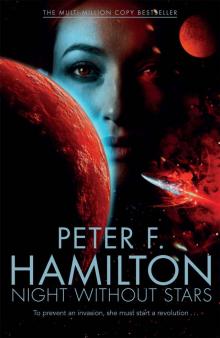 A Night Without Stars
A Night Without Stars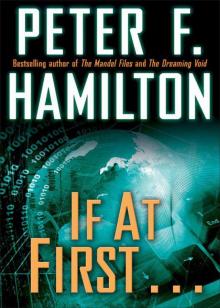 If at First . . .
If at First . . .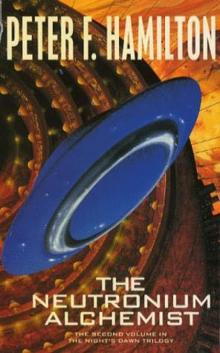 The Neutronium Alchemist
The Neutronium Alchemist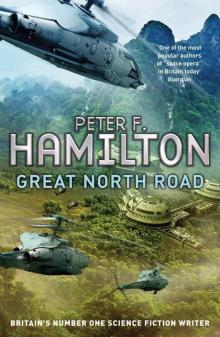 Great North Road
Great North Road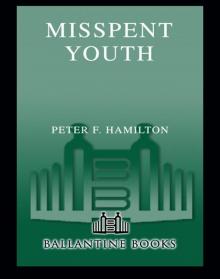 Misspent Youth
Misspent Youth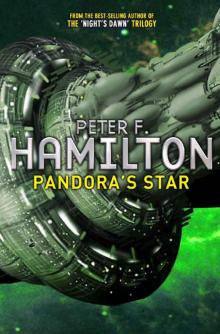 Pandora's Star
Pandora's Star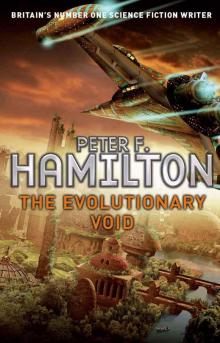 The Evolutionary Void
The Evolutionary Void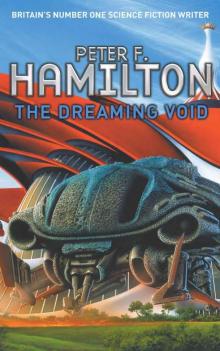 The Dreaming Void
The Dreaming Void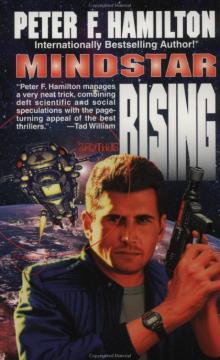 Mindstar Rising
Mindstar Rising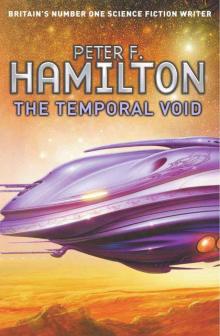 The Temporal Void
The Temporal Void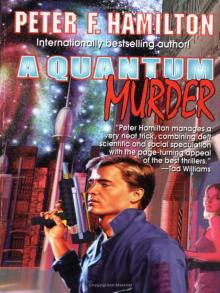 A Quantum Murder
A Quantum Murder The Hunting of the Princes
The Hunting of the Princes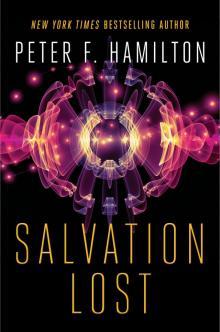 Salvation Lost
Salvation Lost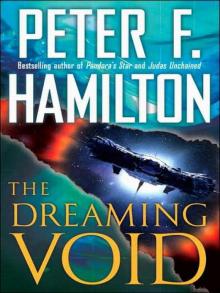 The Dreaming
The Dreaming Salvation
Salvation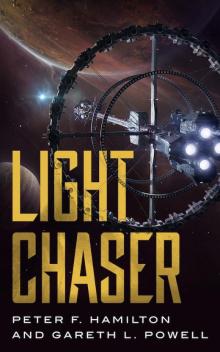 Light Chaser
Light Chaser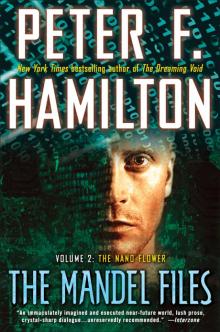 The Mandel Files, Volume 2: The Nano Flower
The Mandel Files, Volume 2: The Nano Flower![The Saints of Salvation [British Ed.] Read online](http://i1.bookreadfree.com/22/the_saints_of_salvation_british_ed__preview.jpg) The Saints of Salvation [British Ed.]
The Saints of Salvation [British Ed.]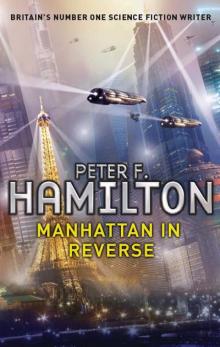 Manhattan in Reverse
Manhattan in Reverse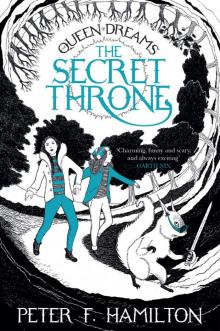 The Secret Throne
The Secret Throne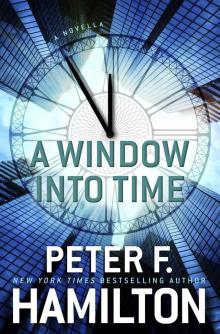 A Window Into Time
A Window Into Time A Second Chance at Eden
A Second Chance at Eden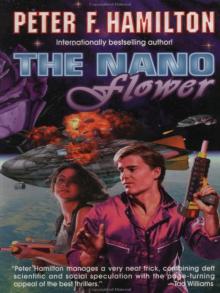 The Nano Flower
The Nano Flower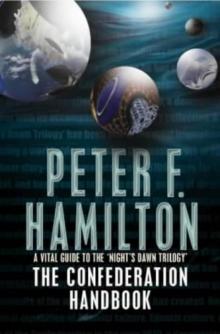 The Confederation Handbook
The Confederation Handbook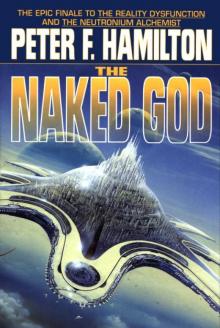 The Naked God
The Naked God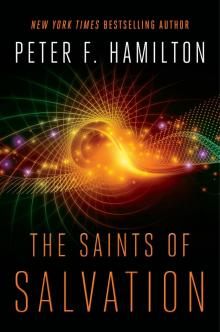 The Saints of Salvation
The Saints of Salvation The Void Trilogy 3-Book Bundle
The Void Trilogy 3-Book Bundle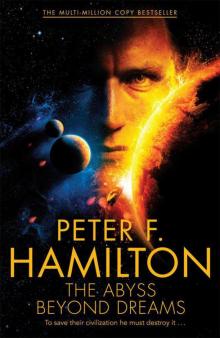 The Abyss Beyond Dreams
The Abyss Beyond Dreams A Voyage Through Air
A Voyage Through Air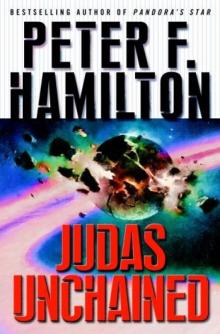 Judas Unchained
Judas Unchained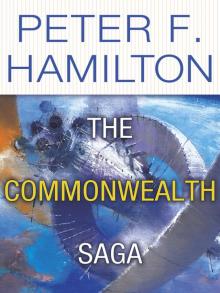 The Commonwealth Saga 2-Book Bundle
The Commonwealth Saga 2-Book Bundle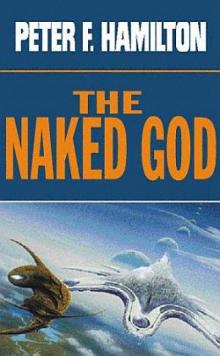 The Naked God - Flight nd-5
The Naked God - Flight nd-5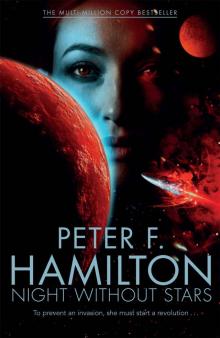 Night Without Stars (Chronicle of the Fallers Book 2)
Night Without Stars (Chronicle of the Fallers Book 2)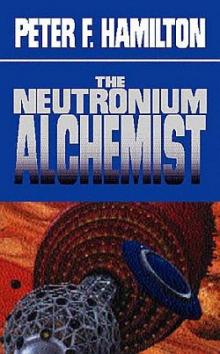 Neutronium Alchemist - Conflict nd-4
Neutronium Alchemist - Conflict nd-4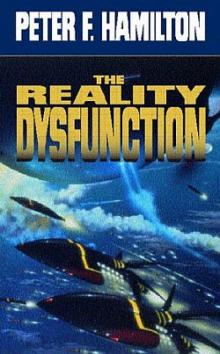 Reality Dysfunction - Expansion nd-2
Reality Dysfunction - Expansion nd-2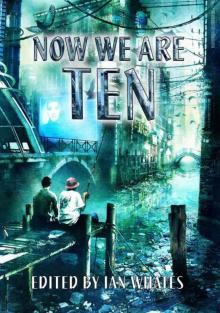 Now We Are Ten: Celebrating the First Ten Years of NewCon Press
Now We Are Ten: Celebrating the First Ten Years of NewCon Press Neutronium Alchemist - Consolidation nd-3
Neutronium Alchemist - Consolidation nd-3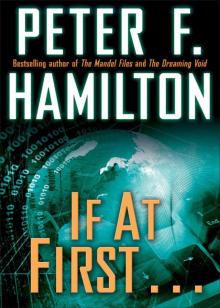 If at First . . . (Short Story)
If at First . . . (Short Story)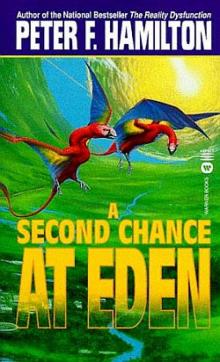 A Second Chance at Eden nd-7
A Second Chance at Eden nd-7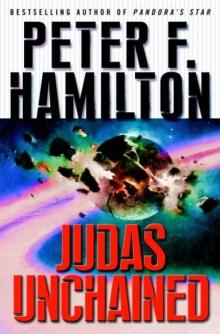 Judas Unchained cs-2
Judas Unchained cs-2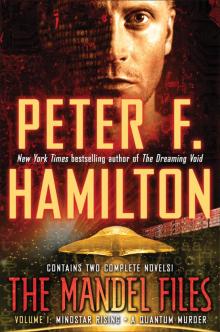 The Mandel Files, Volume 1
The Mandel Files, Volume 1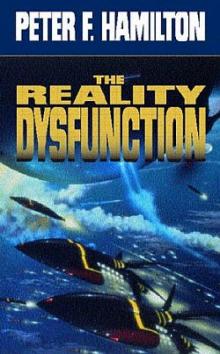 Reality Dysfunction — Emergence nd-1
Reality Dysfunction — Emergence nd-1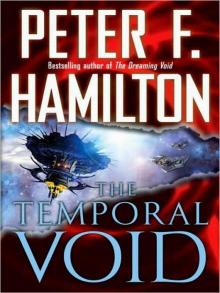 The Temporal Void (ARC)
The Temporal Void (ARC)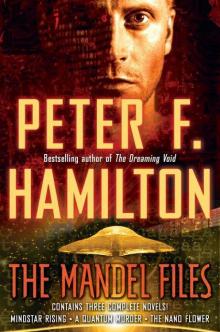 The Mandel Files
The Mandel Files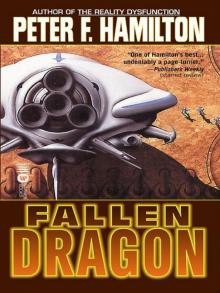 Fallen Fragon
Fallen Fragon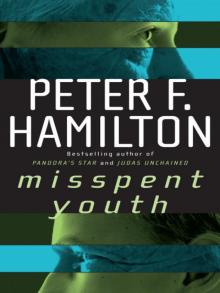 Misspent Youth (commonwealth saga)
Misspent Youth (commonwealth saga)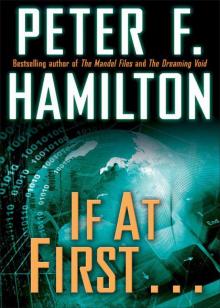 If at First...
If at First... Best of British Science Fiction 2016
Best of British Science Fiction 2016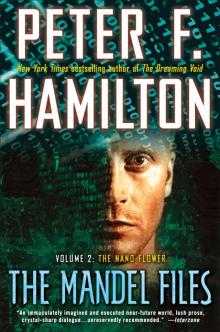 The Mandel Files, Volume 2
The Mandel Files, Volume 2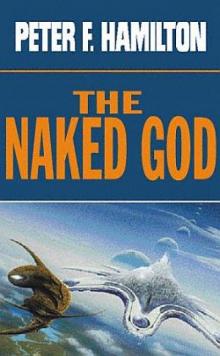 The Naked God - Faith nd-6
The Naked God - Faith nd-6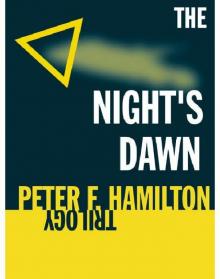 The Night's Dawn Trilogy
The Night's Dawn Trilogy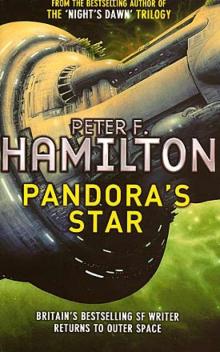 Pandora's Star cs-2
Pandora's Star cs-2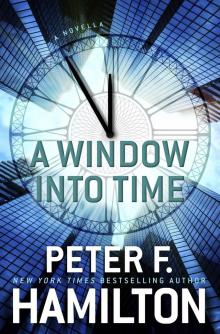 A Window into Time (Novella)
A Window into Time (Novella)